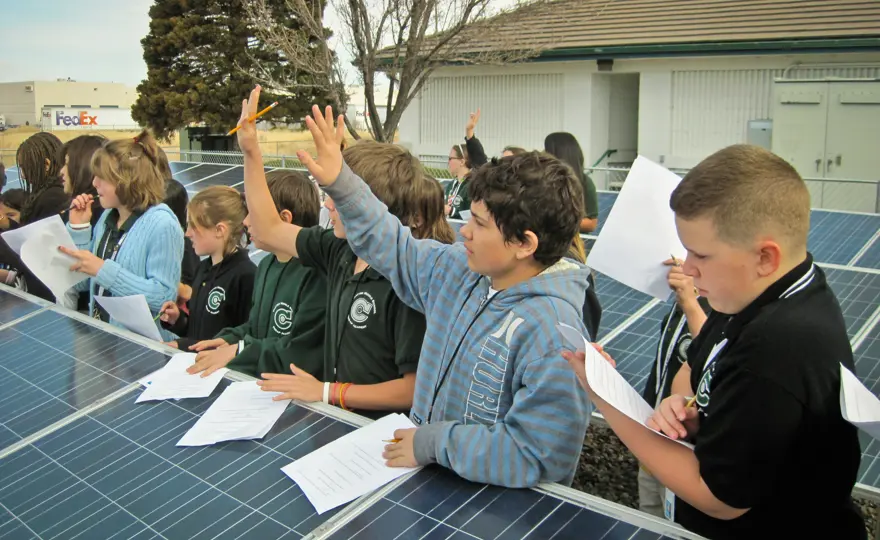ClientEarth Communications
12th May 2021


Renewable community energy, where people are directly involved in creating clean power that they can then share, consume, store and sell, could be instrumental in meeting global climate goals.
The EU produced a revolutionary set of laws to allow this to happen. It’s now over to national governments to take full advantage of these laws and empower people to take action.
If we are to meet the challenge of climate change, our world needs a rapid exit from fossil fuels. But right now, Europe relies on big power plants to create energy – and the bigger the beast, the slower the transformation. While this ‘centralised’ set-up provides people with electricity, it takes away their power to protect the climate, and to connect with their energy – and each other.
Despite the mutually acknowledged need for a rapid shift to clean energy, a shocking 85% of the energy consumed in the European Union still comes from fossil fuels, including natural gas. Huge companies usually benefit from this system. Coal and gas across Europe are still being subsidised in the billions each year, often through auctions that decide the energy mix and leave smaller, cleaner businesses unable to compete. Near-monopolies can also drive prices up for consumers.
In general, it’s difficult for consumers to grasp how these centralised systems work. Individual consumers lose sight of and therefore often ignore the impacts of their energy choices.
Here’s where renewable energy communities come in.
The term refers to initiatives where individuals, small and medium-sized businesses and local authorities may come together to invest in, own, or benefit from a local energy project that produces, sells or distributes renewable energy.
Energy communities are driven by local people and profits made through this approach are typically invested back into local economies, creating even greater benefits and economic development opportunities than ‘traditional’ energy expansion.
In South London, the Brixton Energy cooperative brings together residents who have fitted solar panels on the roof of their council estate. The project has not only reduced carbon emissions, it also brought down energy prices for the estate’s residents. Any revenue that comes off of the solar panels on the rooftop is then reinvested in the community.
This type of initiative could mushroom. By 2050, an estimated 45% of EU households could contribute to renewable energy production, one-third of which could come from energy communities.
Building energy communities doesn’t come without its challenges. The main obstacle so far? Unclear legal status and procedures have made it hard to get an energy community going.
But new EU laws could change the game. Between 2018 and 2019, the European Union published a series of laws known as the “Clean Energy Package” to accelerate the transition away from fossil fuels and towards cleaner energy.
With this new legal framework, the EU set a binding objective to increase renewables by 32% by 2030. It also, importantly, did two things.
As is the case with any EU law, the key is how EU countries make it work at home.
ClientEarth has been working with other organisations, as part of the PROSEU – Prosumers for the energy union and the Community Power Coalition to build a legal basis good enough to get energy communities going all over the EU.
Another big part of our work was done with Rescoop. Together, we have provided a guide on how to make the EU laws on community energy work in each member state, to help remove those initial barriers.
The momentum is growing. Clean power advocates at Patagonia have just released a film on community energy, which you can watch here.
And for more information about energy communities, you can read:
PROSEU’s Mainstreaming prosumerism - Energy with the people
The Community Power Coalition’s Vision Statement